Antiaging skin care … for kids?
Kids as young as 9 are using antiaging products. A Kaiser Permanente dermatologist explains how these products can do more harm than good.
Teens and preteens don’t need expensive cosmetics or a 10-step skincare routine. Just a few good habits can help them keep their skin healthy.
Trends come and go for teenagers and preteens, but a recent surge of interest in antiaging skin care has dermatologist Natalie Nasser, MD, concerned. Popular videos on social media show girls as young as 9 or 10 buying and using expensive antiaging products.
Some products are downright irritating
Dr. Nasser, a Kaiser Permanente physician in Riverside, California, explains that many products are unnecessary for young people and may do more harm than good.
“Products with salicylic acid, retinol, and peptides are more suitable for mature skin. For kids and teens without skin problems, these products can irritate the skin and even cause redness, peeling, or itching,” said Dr. Nasser.
Some people mix products to create a “skin care smoothie,” not knowing that some ingredients aren’t meant to be mixed. The wrong ingredients used together can alter the skin’s pH level and result in irritation. Some antiaging products can even increase the risk of sun sensitivity.
Start good habits early
Dr. Nasser recommends that preteens and teens stick to a basic skin care routine: “Cleanse the face once or twice a day with a gentle facial cleanser. In the morning, use a broad-spectrum sunscreen with an SPF of 30 or more. If the skin is dry at night, you can add a facial moisturizer. No 10-step skin care routine is necessary, and drugstore products are perfectly fine,” said Dr. Nasser.
She stresses that using sun protection is the best way for young people (and people of all ages) to avoid skin damage. In addition to using sunscreen, kids should adopt sun-safe habits early. This includes avoiding the sun during peak hours, wearing broad-brimmed hats, and wearing sunglasses.
When in doubt, ask a professional
For young people with skin conditions, Dr. Nasser recommends skipping social media advice and going straight to a board-certified expert.
“Some teens or preteens with acne might benefit from products with benzoyl peroxide, salicylic acid, or retinol. But it’s always best to seek the care and guidance of a health care professional when treating acne,” advises Dr. Nasser, giving a reminder that every patient is unique.
“As we always say, start low and go slow.”
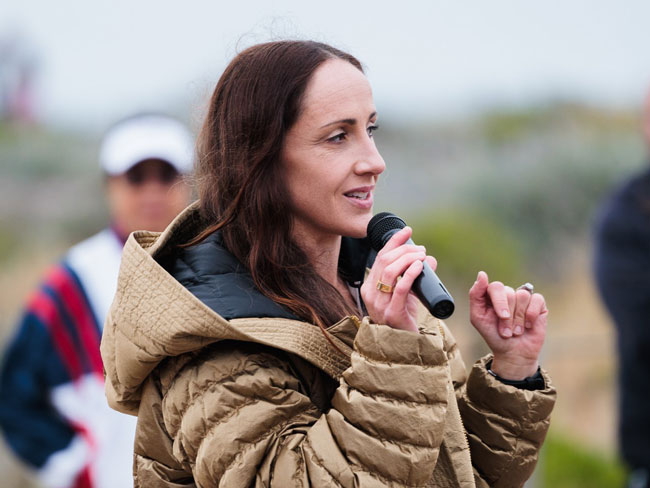
May 19, 2025
A champion for healthy motherhood
As an Olympic athlete, Shannon Rowbury fought for better maternity policies. …

March 5, 2025
6 definitive traits of a middle child
Parade

January 22, 2025
A preteen overcomes anxiety and suicidal thoughts
A young Kaiser Permanente member speaks up to gain the mental health support …
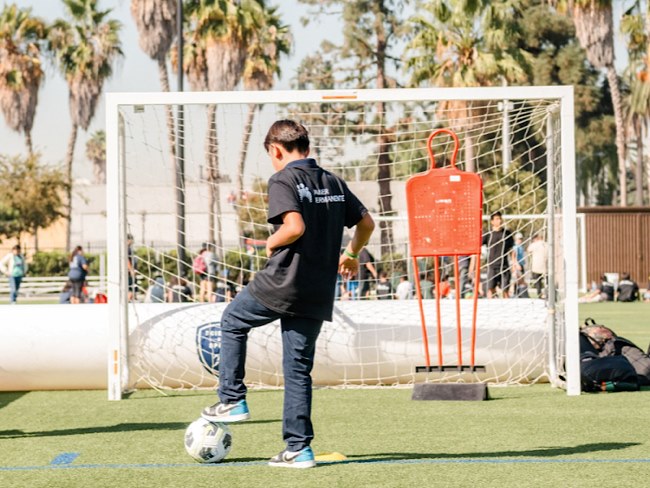
December 30, 2024
Fit and thriving: Inspiring students at school
Kaiser Permanente and Los Angeles Football Club are committed to building …

October 18, 2024
Hidden hazards of Halloween
Expert tips to ensure your little ghosts and goblins stay safe this Halloween, …

July 18, 2024
Easy school lunch and snack tips
Ideas for healthy, delicious, and hassle-free snacks and lunches to keep …

July 17, 2024
4 parent tips for back-to-school success
The start of the school year can bring up different emotions for children …

July 11, 2024
Transforming education and mental health in Watts
Our investment in the Watts neighborhood of California, in partnership …
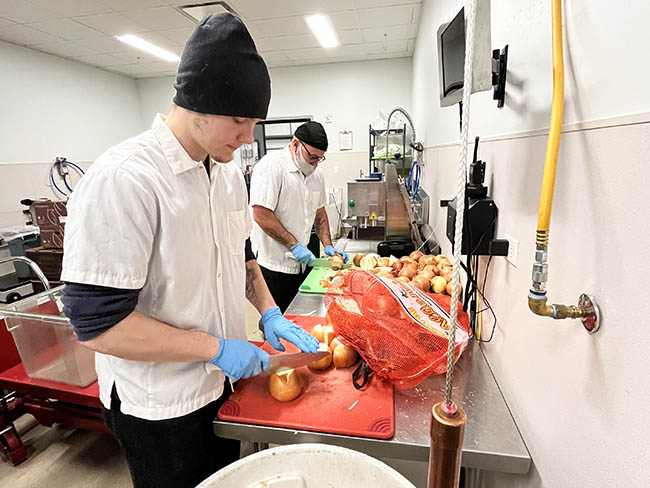
July 10, 2024
Grant to help make school lunches healthier for kids
Chef Ann Foundation will use $275,000 grant for Colorado program to convert …
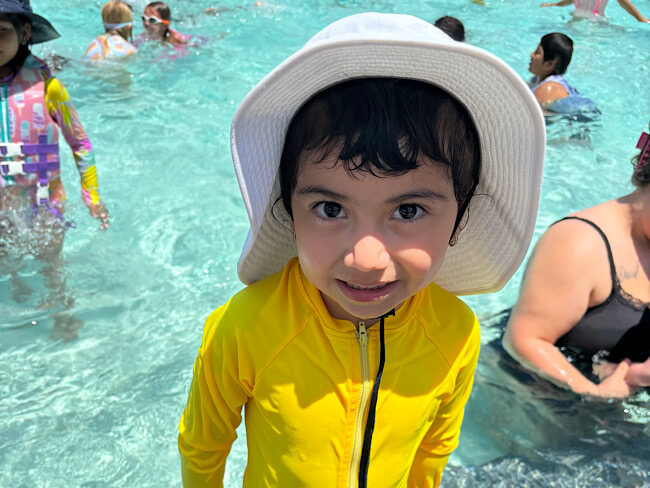
June 28, 2024
Operation Splash makes a splash for safe summer fun
Kaiser Permanente is making waves this summer, ensuring that communities …
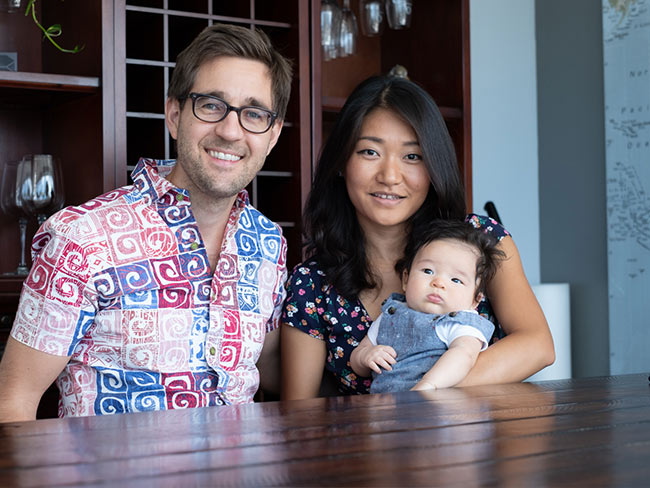
June 25, 2024
Prompt postpartum care saves a baby’s life
When a newborn was diagnosed with meningitis, a life-threatening infection …
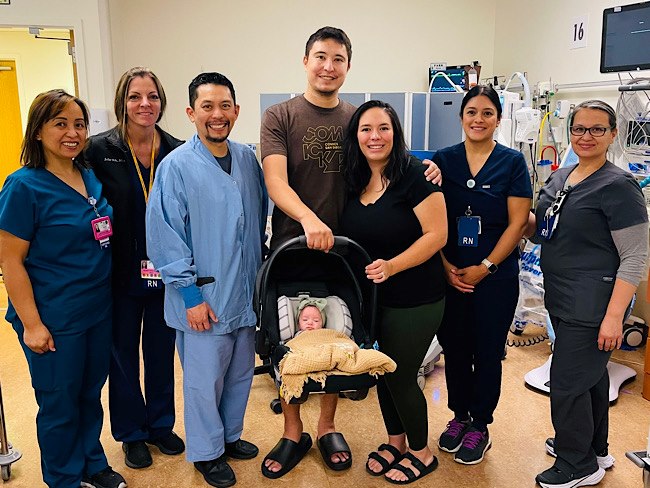
June 17, 2024
That’s a lot of babies!
Delivering multiple babies is difficult, but Kaiser Permanente care teams …
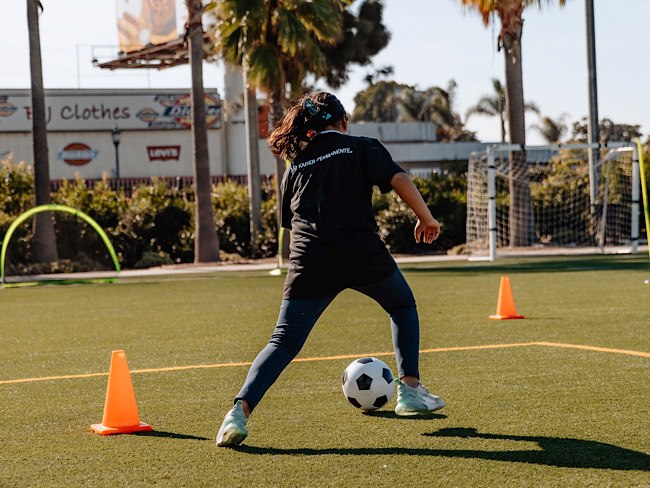
May 31, 2024
Inspiring students to take charge of their health
Kaiser Permanente and the Los Angeles Football Club will launch the second …

May 10, 2024
Self-care is key for new parents
Feeling emotional or overwhelmed after a new baby’s arrival? You’re not …

March 14, 2024
Midwife offers personal care for mom facing complications
For Sam Beeson, having a midwife at her side during her pregnancy helped …

February 21, 2024
From planning his funeral to celebrating his wedding
Gabriel Abarca had no hope for his future. Then the team at Kaiser Permanente …
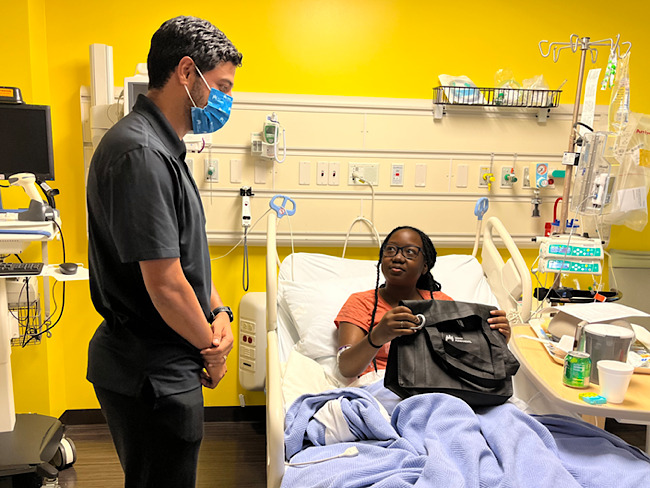
January 12, 2024
Cheering up hospitalized children
Los Angeles Football Club player Carlos Vela brings joy to Kaiser Permanente …
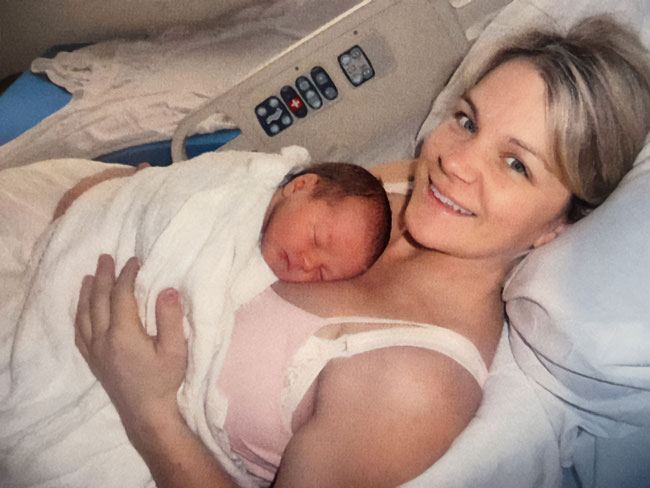
December 15, 2023
Family-centered care, through pregnancy and beyond
Members experiencing a low risk pregnancy have the option of having their …

December 15, 2023
Building healthy communities through play
Kaiser Permanente teams up with Los Angeles Football Club to build 5 futsal …
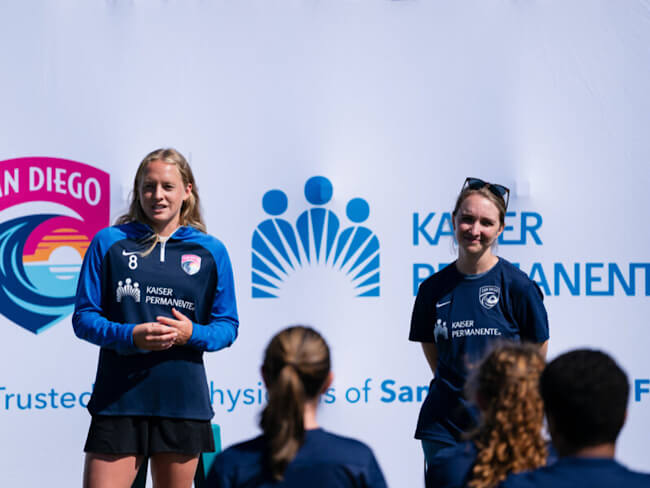
December 8, 2023
Inspiring a Wave of Wellness with youth
Kaiser Permanente and San Diego Wave Fútbol Club educated San Diego youth …

November 15, 2023
Spreading the truth about flavored tobacco and youth vaping
A youth vaping curriculum is making a difference.

October 27, 2023
Nearsightedness in kids: Taking a closer look
Nearsightedness, also known as myopia, is on the rise. To reverse that …

October 25, 2023
Critical care and support for our youngest patients
In Oregon, specialists and parents come together to design a specialized …

October 24, 2023
Childhood anxiety: What parents need to know
A child and adolescent psychiatrist shares tips on supporting your child …

August 14, 2023
Tips for ensuring a safe and healthy college experience
Students should study up on their care options to ace their school experience. …

August 10, 2023
Successfully navigating the school year
These tips from Don Mordecai, MD, Kaiser Permanente’s national mental health …

July 25, 2023
5 breastfeeding myths debunked
Tarayn Fairlie, MD, a pediatrician and lactation consultant, helps separate …
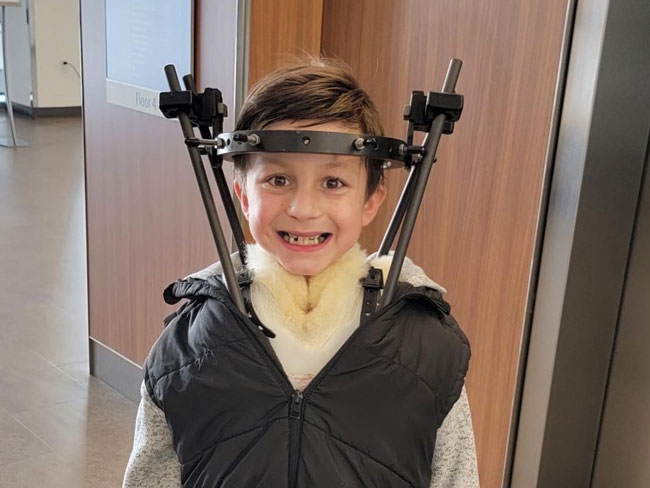
June 27, 2023
Comforting, personalized care for a kiddo with cancer
Carter Shaver from Portland, Oregon, shares his optimistic smile after …

June 6, 2023
COVID-19 vaccine: No serious side effects in young children
Kaiser Permanente researchers led analysis of large, diverse group of young …

May 9, 2023
School shootings provoke anxiety in many children
Child psychiatrist defines anxiety, its symptoms, how to address it, and …

April 14, 2023
The importance of screening for gestational diabetes
Gestational diabetes poses a significant risk to women of color, particularly …

March 14, 2023
Extra pounds put kids at higher risk for hypertension
Kaiser Permanente study shows even modest elevations in BMI above the “average …

February 23, 2023
Eating disorders on the rise among teens
Expert shares 5 valuable tips for parents and guardians to help children …

December 15, 2022
Helping provide teens a brighter future
Kaiser Permanente grants $150,000 to three community nonprofits.
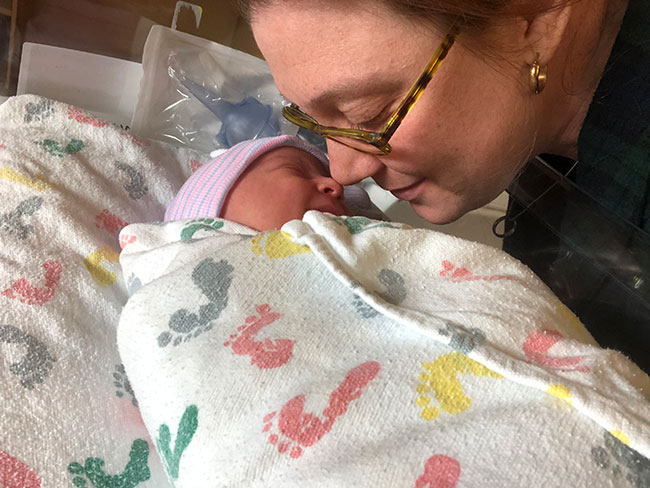
September 27, 2022
Maternity appointments from the comfort of home
New care option offers pregnant patients a mix of in-person and video visits.

September 13, 2022
Creating tobacco-free communities
Kaiser Permanente backs national efforts to ban flavored tobacco.
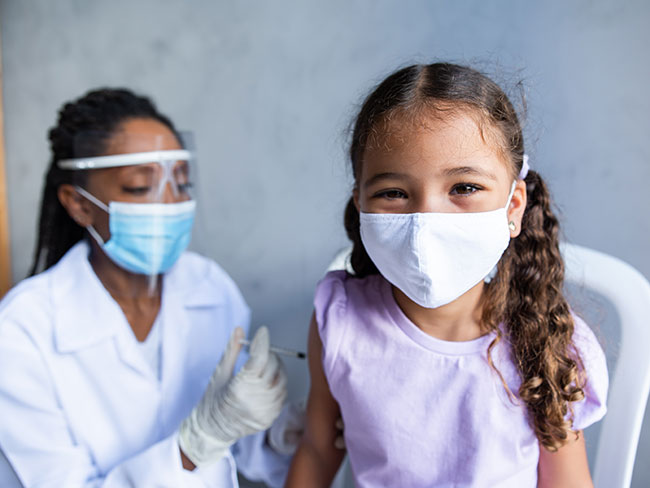
June 27, 2022
Kids 6 months to 17 years can receive COVID-19 vaccination
Providing safe and effective vaccinations to children is an important step …

June 24, 2022
New South Lynnwood Park creates healthy play space
Kaiser Permanente provided funds for renovated public park, with new features …

May 25, 2022
Be a source of comfort and calm
Trusted conversations help youth feel safe when community violence occurs.
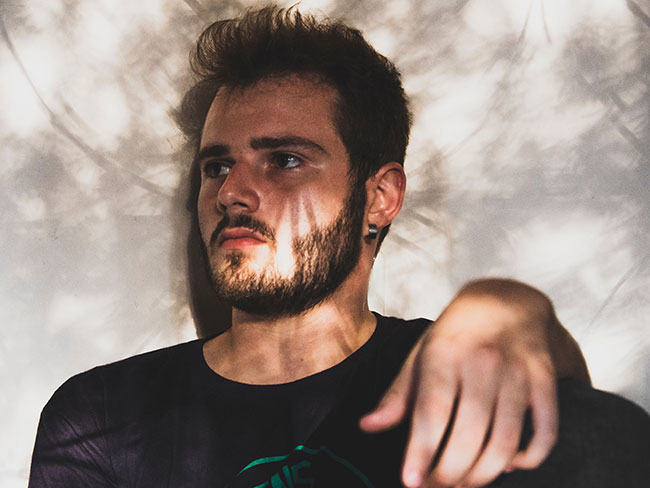
May 3, 2022
One pill can kill: Understanding the risks of fentanyl
As overdose deaths skyrocket, an addiction medicine specialist explains …
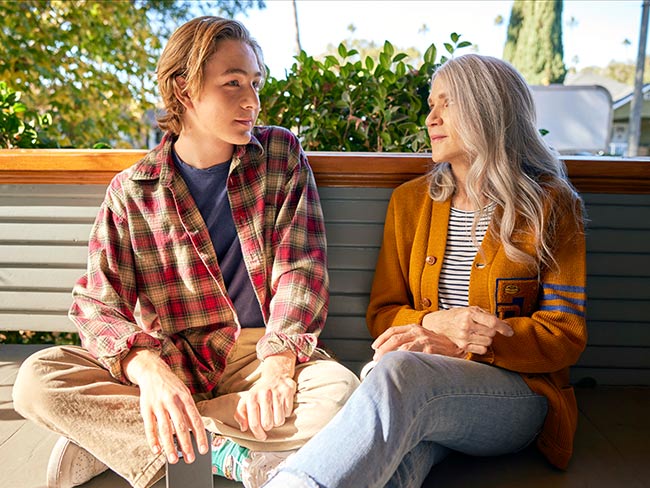
March 4, 2022
Online quiz helps predict likelihood of teen substance use
Assessment helps parents and caregivers intervene early when kids are at …

October 1, 2021
Our support of California’s student vaccination requirement
A statement from Kaiser Permanente chair and chief executive officer Greg …
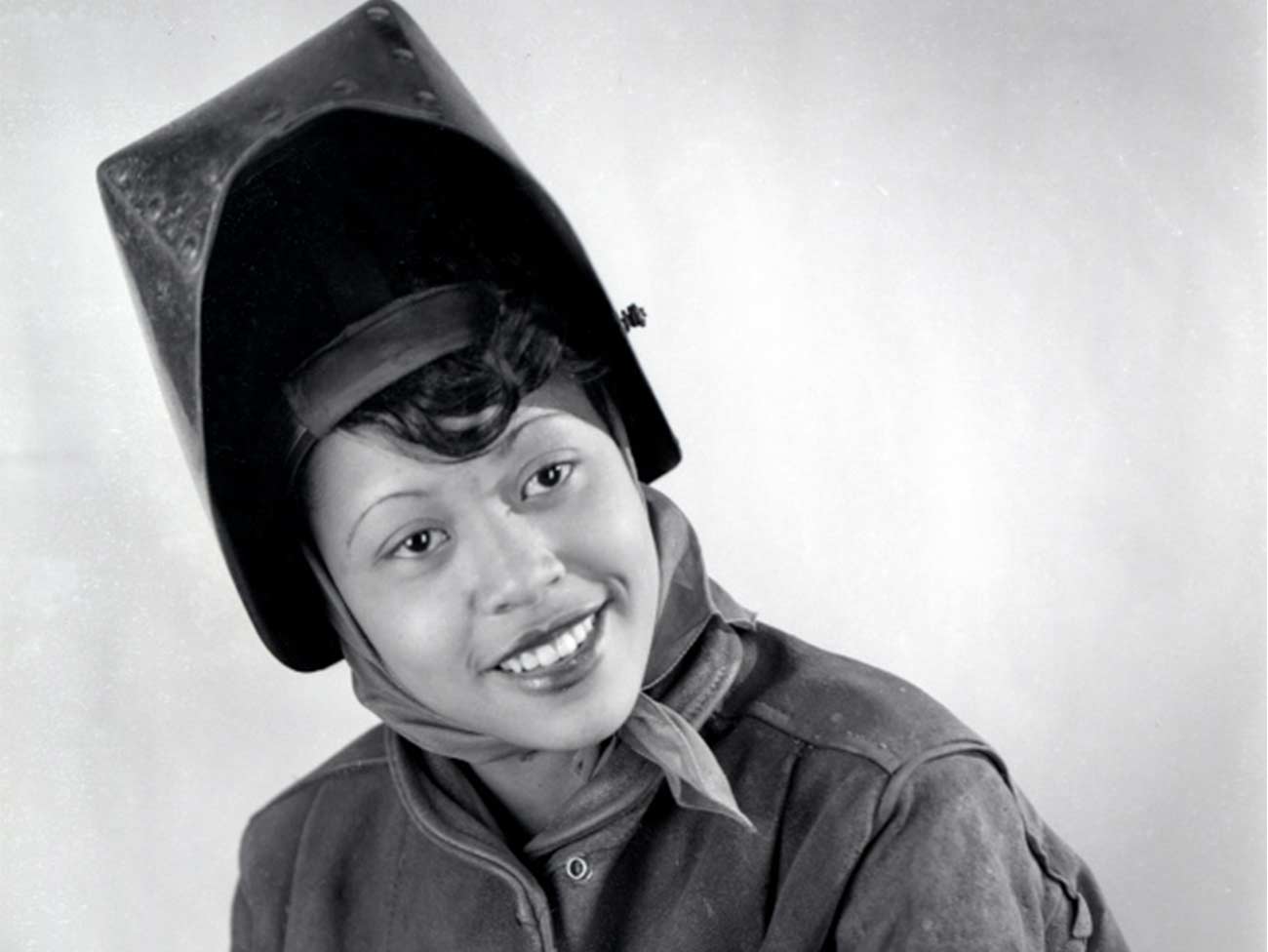
March 8, 2018
Slacks, not slackers — women’s role in winning World War II
Women who worked in the Kaiser shipyards helped lay the groundwork for …
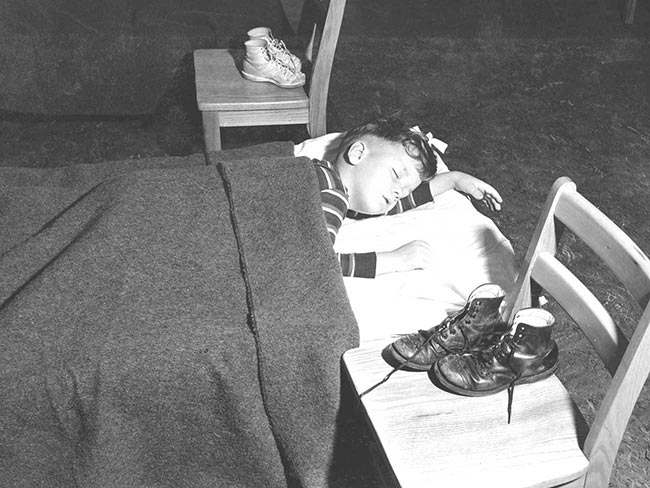
September 29, 2010
Wartime shipyard child care centers set standards for future
In 1943, Henry J. Kaiser invited key figures in child development studies …

Caesar salad
Try this classic salad recipe to get your kids to eat more fresh produce.